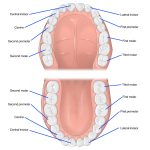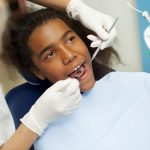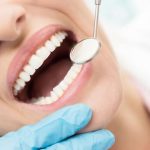Dog Dental Care: How Often Should You Clean Your Pup’s Teeth?
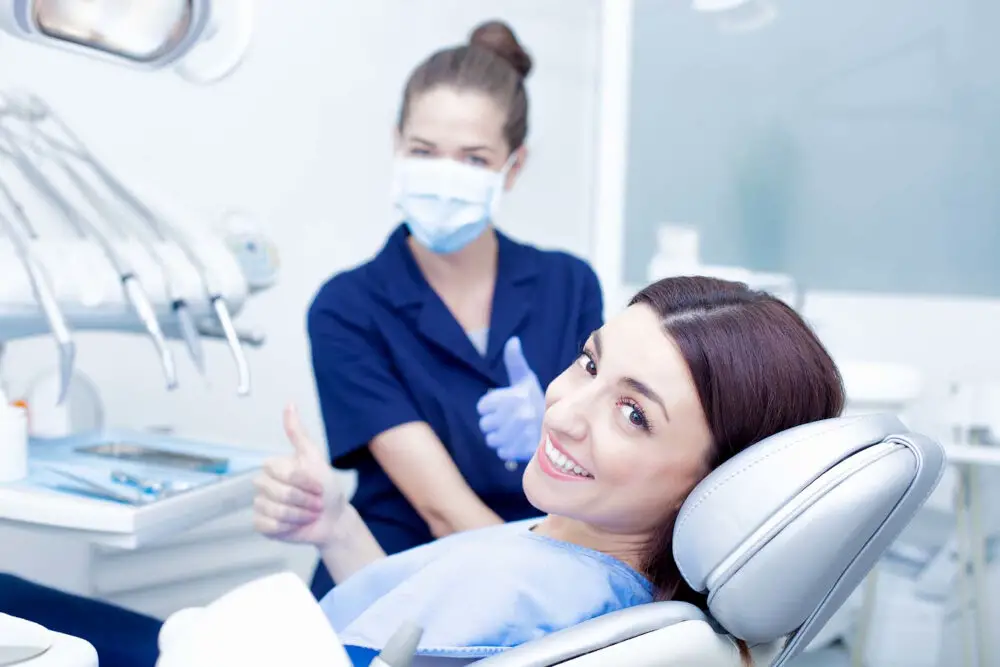
As pet owners, we all want the best for our furry friends. We make sure they get enough exercise, eat healthy food, and get regular check-ups at the vet. But, how often do we think about our dog’s dental health? Just like humans, dogs need proper dental care to prevent tooth decay, bad breath, and other dental issues. Neglecting your dog’s dental health can lead to serious health problems, such as periodontal disease, which can cause pain, tooth loss, and infections that can spread to other parts of the body. Fortunately, there are steps you can take to keep your pup’s teeth clean and healthy. In this article, we’ll discuss the importance of dog dental care and provide tips on how often you should clean your dog’s teeth to keep them healthy and happy.
Dental care is essential for dogs because it prevents the occurrence of painful dental diseases that can affect their overall health. Poor dental hygiene in dogs can lead to plaque buildup, tartar accumulation, and gum inflammation, which can cause tooth decay, bad breath, and tooth loss. Furthermore, the bacteria from dental infections can enter the bloodstream and affect the heart, liver, and kidneys. Therefore, dog owners must prioritize their pet’s dental health by regularly cleaning their teeth and providing them with dental chews and toys to maintain their oral hygiene and keep them happy and healthy.
Dental problems in dogs are quite common, and can range from mild to severe. One of the most common dental problems in dogs is periodontal disease, which is caused by the buildup of plaque and tartar on the teeth. This can lead to inflammation of the gums, bad breath, and even tooth loss. Other common dental problems in dogs include broken teeth, abscesses, and oral tumors. It is important for dog owners to regularly clean their dog’s teeth, provide them with chew toys, and take them to the vet for routine dental checkups to prevent and treat these issues.
Heading 1: Signs that your dog needs dental cleaning

Dental hygiene is as important for dogs as it is for humans. However, unlike humans, dogs cannot brush their teeth themselves, making it the owner’s responsibility to ensure their pup’s oral health. One of the most common dental issues that dogs face is dental tartar buildup, which can lead to gum disease, tooth decay, and even heart problems. Therefore, it is crucial to identify the signs that your dog needs dental cleaning to prevent such issues from arising. Some of the most common indicators are bad breath, yellow or brown teeth, swollen gums, and reluctance to eat hard food. If you notice any of these signs, it’s time to take your dog to the vet for a thorough dental cleaning. Apart from the physical signs, there are also behavioral indications that your dog needs dental cleaning. For instance, excessive drooling, pawing at the mouth, or rubbing the face against furniture could be signs of dental discomfort. Additionally, if your dog appears lethargic or seems to be in pain while eating, it could be due to dental issues. As a responsible pet owner, you should not overlook these signs and take your dog to the vet as soon as possible. Regular dental cleaning can not only improve your dog’s oral health but also enhance their overall well-being and quality of life.
Dental problems can be a significant issue for dogs if not addressed promptly. Some of the common symptoms of dental problems in dogs include bad breath, swollen or bleeding gums, yellow or brown teeth, difficulty chewing or eating, loss of appetite, excessive drooling, and tooth sensitivity. Dogs may also show signs of discomfort or pain when their mouths are touched or when they try to eat. If you notice any of these symptoms, it is important to consult with a veterinarian as soon as possible to ensure your dog’s dental health is properly addressed. Regular dental care, including brushing and professional cleanings, can help prevent these issues from arising.
It is crucial to catch dental problems early in dogs as it can prevent severe health issues from developing. Dental problems such as tooth decay, gum disease, and plaque buildup can lead to tooth loss and infections that can spread throughout the body. Additionally, dental issues can cause pain and discomfort, leading to a decrease in appetite and overall quality of life. Regular dental check-ups and cleanings can help detect and prevent dental problems before they worsen, ensuring that your pup maintains good oral health and overall wellbeing. Taking proper care of your dog’s teeth is an essential part of their overall healthcare routine, and catching dental problems early can save both time and money in the long run.
Heading 2: How to clean your dog’s teeth
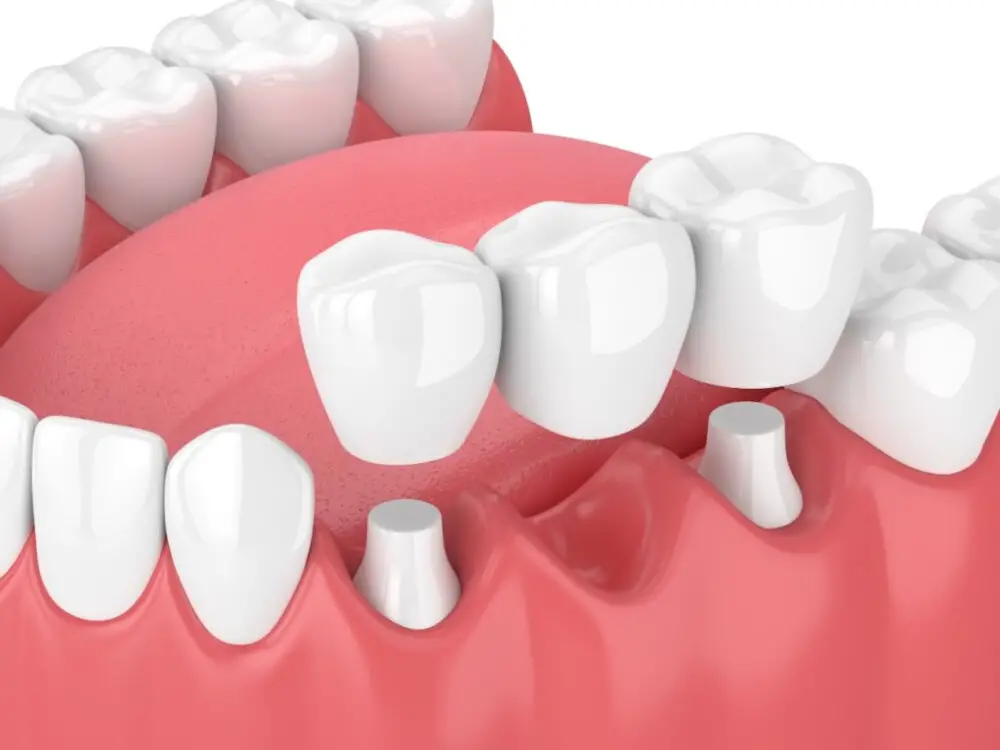
Good dental hygiene is essential for your dog’s overall health and well-being. Just like humans, dogs can also suffer from gum disease, tooth decay, and bad breath. While regular brushing is the best way to keep your pup’s teeth clean, many pet owners often overlook this aspect of their pet’s care. If you’re wondering how to clean your dog’s teeth, the process is relatively simple. Firstly, you’ll need to purchase a dog-specific toothbrush and toothpaste, as human toothpaste can be harmful to dogs. You can also use a finger brush or gauze if your dog is not comfortable with a toothbrush. Begin by introducing your dog to the toothbrush and toothpaste slowly. Start by allowing them to sniff the toothbrush and toothpaste before gradually introducing them to the taste and texture. Once your dog is comfortable with the toothbrush and toothpaste, begin brushing their teeth in a circular motion. Focus on the back teeth, as these are the areas most prone to plaque buildup. In addition to brushing, there are several other ways to keep your dog’s teeth clean. Providing your dog with chew toys, bones, and dental treats can help remove plaque and tartar buildup. Additionally, incorporating a high-quality dog food that promotes dental health can also be beneficial. It’s essential to establish a regular dental care routine for your dog to prevent dental problems from developing. Depending on your dog’s breed, age, and overall health, your veterinarian may recommend more frequent dental cleanings. By prioritizing your dog’s dental health, you can help keep them happy and healthy for years to come.
Maintaining good oral hygiene for your dog is crucial for their overall health, and there are various methods you can use to clean their teeth. Brushing your dog’s teeth with a toothbrush and toothpaste designed for dogs is the most effective method and should be done at least once a week. Dental chews are another option, which can help remove plaque and tartar buildup and freshen breath. However, they should not be relied upon as the sole method of dental care. Professional dental cleanings performed by a veterinarian are also recommended at least once a year, especially for dogs with severe dental issues. By incorporating a combination of these methods into your dog’s dental care routine, you can help ensure they maintain healthy teeth and gums.
Ensuring proper dental care for your furry friend is crucial for maintaining their overall health and well-being. There are several methods for cleaning your pup’s teeth, each with its benefits and drawbacks. One effective method is brushing their teeth regularly with a soft-bristled toothbrush and dog-specific toothpaste. First, introduce your dog to the toothbrush and toothpaste, allowing them to lick and smell it. Then, gently lift their lip and begin brushing in circular motions, focusing on the gum line and back molars. Another option is dental chews or toys, which can help remove tartar and plaque buildup. Consult with your veterinarian to determine the best method for your pup’s individual needs and implement a regular dental care routine to maintain their oral health.
There are several methods you can use to clean your dog’s teeth, and each has its pros and cons. Brushing your dog’s teeth with a toothbrush and toothpaste is highly effective in removing plaque and tartar, but it can be challenging to get your dog to cooperate. Dental chews and toys can help clean your dog’s teeth, but they may not be as effective as brushing. Dental sprays and gels can be an easy and quick way to clean your dog’s teeth, but they may not be as thorough as brushing. Ultimately, the best method for you and your dog will depend on your individual circumstances, such as your dog’s temperament and your own time and budget constraints.
Heading 3: How often should you clean your dog’s teeth?
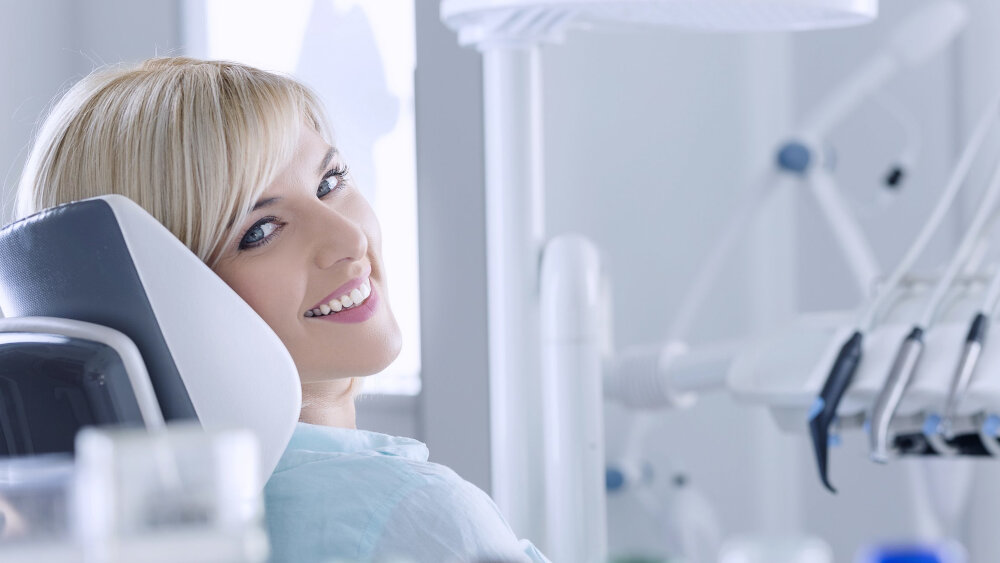
Dog dental care is an essential aspect of maintaining your pup’s overall health and well-being. Proper dental hygiene can prevent gum disease, tooth decay, and bad breath, among other problems. Cleaning your dog’s teeth regularly is an important part of their dental care routine. But how often should you clean your dog’s teeth?The frequency of tooth cleaning will depend on your dog’s dental health needs and daily habits. For example, dogs who only eat soft food may need more frequent cleaning than those who eat a hard kibble diet. In general, veterinarians recommend brushing your dog’s teeth at least 2-3 times a week. However, if you notice any signs of dental problems, such as bad breath, loose teeth or bleeding gums, you should consult your veterinarian immediately and follow their recommended cleaning schedule. Remember, prevention is always better than cure, so make sure to keep your pup’s teeth clean and healthy to avoid any dental issues.
The recommended frequency for dental cleanings in dogs varies depending on their age and breed. Generally, it’s recommended that dogs receive dental cleanings every six to twelve months. However, some breeds may require more frequent cleanings due to their predisposition to dental issues. For example, small breeds like Chihuahuas and Yorkshire Terriers are more prone to dental problems and may require more frequent cleanings. Similarly, older dogs may also require more frequent cleanings due to age-related dental issues. Regular dental cleanings not only improve your dog’s oral health but also prevent other health problems related to dental issues like heart, kidney, and liver disease. Therefore, it’s crucial to consult with your veterinarian to determine the ideal frequency of dental cleanings for your dog.
Just like humans, some dogs may require more frequent dental cleanings than others. This can be due to a variety of factors such as age, breed, diet, and overall oral health. Older dogs may have weaker teeth and gums, which can lead to more frequent buildup of plaque and tartar. Breeds with smaller mouths or crowded teeth may also be more prone to dental issues. Additionally, dogs who consume a diet high in carbohydrates or sugars may be at a greater risk for dental problems. It’s important to regularly monitor your dog’s oral health and consult with your veterinarian to determine the appropriate frequency of dental cleanings. By staying on top of your dog’s dental care, you can help ensure their overall health and wellbeing.
Heading 4: Tips for maintaining your dog’s dental health
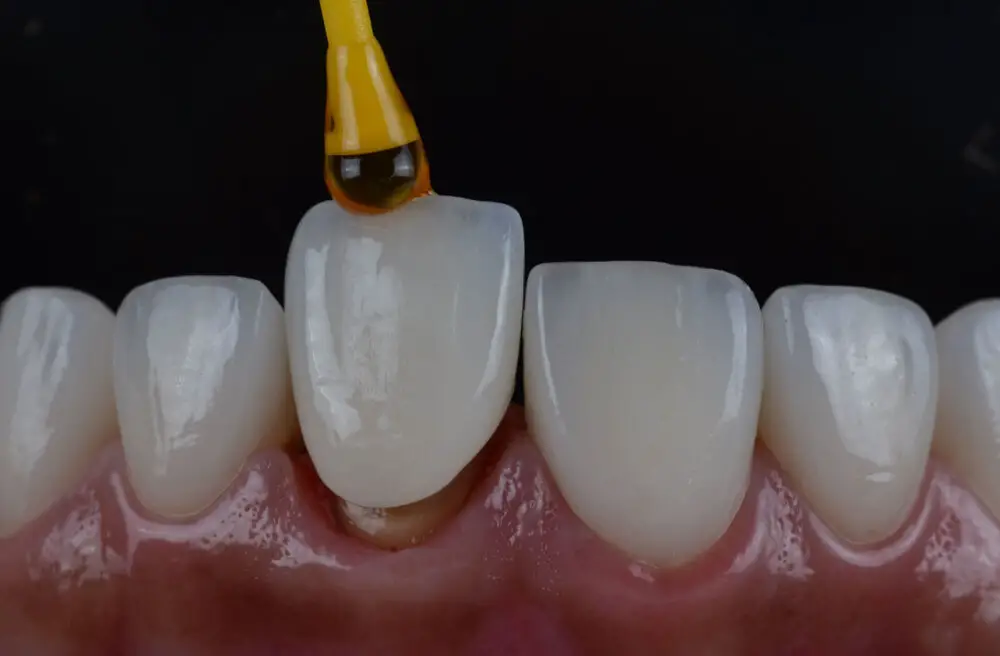
Dental health is an essential aspect of your dog’s overall wellbeing. Just like humans, dogs can develop dental problems such as bad breath, tooth decay, and gum disease if their teeth are not properly cared for. Here are some tips for maintaining your dog’s dental health:Firstly, start by brushing your dog’s teeth regularly with a dog-specific toothbrush and toothpaste. This helps to remove plaque and bacteria that can cause tooth decay and gum disease. You can also use dental chews and toys that are specially designed to clean your dog’s teeth. Additionally, it’s important to give your dog a healthy diet that is low in sugar and high in nutrients. This can help to prevent the buildup of plaque and tartar on their teeth. By following these simple tips, you can help to ensure that your dog maintains good dental health and enjoys a happy, healthy life. In conclusion, taking care of your dog’s dental health is an important part of being a responsible pet owner. Ignoring dental problems can lead to serious health complications that can affect your dog’s quality of life. By following the tips mentioned above, you can help to prevent dental problems and keep your dog’s teeth in tip-top shape. Remember, prevention is always better than cure, so start taking care of your dog’s dental health today!
Preventing dental problems in dogs is essential for maintaining their overall health. One of the best ways to do this is by brushing their teeth regularly. You can start by using a toothbrush and toothpaste specifically designed for dogs. Additionally, providing your dog with chew toys and bones can help keep their teeth clean and healthy. It’s also important to watch your dog’s diet and limit their intake of sugary and starchy foods. Finally, scheduling regular dental check-ups with your veterinarian can help catch any potential dental problems early on and prevent them from becoming more serious issues. By following these tips, you can help keep your furry friend’s teeth and gums healthy for years to come.
Regular checkups with your veterinarian are crucial for maintaining your dog’s overall health and wellbeing. These appointments allow your veterinarian to monitor your dog’s dental health, catch any potential issues early, and provide necessary treatments or preventative care. Even if your dog appears to be in good health, routine checkups are still essential for detecting underlying health conditions that may not be immediately apparent. Neglecting regular checkups can result in serious health problems that could have been prevented or treated if caught early. By prioritizing regular vet visits, you can ensure that your furry friend stays healthy and happy for years to come.
The article \Dog Dental Care: How Often Should You Clean Your Pup’s Teeth?\ highlights the importance of maintaining proper dental hygiene in dogs. The article emphasizes that regular teeth cleaning can prevent serious dental problems such as gum disease, tooth decay, and bad breath. The author suggests that pet owners should brush their dog’s teeth daily or at least three times a week. The article also provides alternative methods to clean a dog’s teeth, such as dental chews and toys. The author advises pet owners to consult with a veterinarian if they notice any signs of dental problems, including bleeding gums, loose teeth, or excessive drooling. The article concludes by stressing the importance of regular dental check-ups and professional cleanings to maintain a healthy mouth for their furry friend.
Proper dental care is essential for the overall health and wellbeing of your furry friend. Dental problems in dogs can lead to a host of issues, including bad breath, gum disease, tooth decay, and even systemic infections that can affect vital organs such as the heart and kidneys. Neglecting your dog’s dental care can also cause pain and discomfort, which can lead to behavior problems and a decrease in quality of life. By maintaining a regular dental hygiene routine, including brushing your dog’s teeth and providing dental chews and toys, you can help ensure that your pup’s teeth and gums stay healthy and strong, promoting better overall health and a happy, pain-free life.
Conclusion

In conclusion, proper dental care for dogs is crucial for their overall health and well-being. Regular teeth cleaning should be a part of your pup’s daily routine, and it’s important to use appropriate tools and techniques to avoid damaging their teeth and gums. The frequency of cleaning depends on factors such as age, breed, and diet, but it’s recommended to consult with a veterinarian to determine the best dental care plan for your furry friend. Neglecting dental care can lead to serious health issues, so make sure to prioritize your pup’s dental hygiene to keep them happy and healthy for years to come.
